POEM: A ‘New’ Literature
1 Comment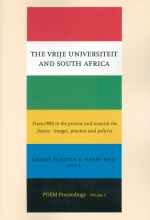 Thank you for the invitation to speak at this important conference. I have been asked to tell you something about my own experience of teaching South African literature at Dutch universities, but also to give an indication of what South African literature departments might be expecting from the Vrije Universiteit (VU) and other Dutch universities at this point in time. This I do as someone who is South African born and bred and who taught at a South African university for 16 years. Every year I go back to South Africa at least once and I have many friends who are also colleagues in Afrikaans and Nederlands departments in South Africa. For various reasons they are suffering severe cutbacks. In the Humanities Faculties at Dutch universities a similar pinch is being felt.
Thank you for the invitation to speak at this important conference. I have been asked to tell you something about my own experience of teaching South African literature at Dutch universities, but also to give an indication of what South African literature departments might be expecting from the Vrije Universiteit (VU) and other Dutch universities at this point in time. This I do as someone who is South African born and bred and who taught at a South African university for 16 years. Every year I go back to South Africa at least once and I have many friends who are also colleagues in Afrikaans and Nederlands departments in South Africa. For various reasons they are suffering severe cutbacks. In the Humanities Faculties at Dutch universities a similar pinch is being felt.
What strategies should be developed in beleaguered times? In searching for an answer I would like to draw our attention for a minute to the rich tradition of so-called extra muros departments of Dutch all over the world: Barcelona, Budapest, Goa, Helsinki, Jakarta, Johannesburg, Jerusalem, London, Los Angeles, Münster, Oldenburg, Olomouc, Oporto, Oslo, Paris, Stellenbosch, Semarang, Strasburg, St Petersburg, Vienna – to name but a few cities where Dutch literature is taught. The differentiating terms intra muros (which refers to the universities in the ‘centre’ – the Netherlands and Belgium) and extra muros (the term refers to the universities outside the walls of the centre; on the ‘margins’) are soundly entrenched in the workings of the Society of Netherlandic Studies. The same has recently become true for the teaching of South African literature. English literature by authors such as Coetzee and Fugard has of course been part of English colonial curricula for many years and I will mainly focus on the new post-apartheid status of Afrikaans literature. It is taught intra muros at South African universities of course and since 1990 extra muros in many different countries all over the world: Poland, Hungary, the Czech Republic, the USA, Austria, Germany, Russia, Belgium and the Netherlands, to name but a few.
My reference to muros, to walls, has inspired my thinking along Trojan horse lines. I believe that we must be innovative in schemes to get inside the walls of learning but once we are there, to look out again, over the wall, to enable us to invite each other in, so that in the end there are no walls any more. Let me now say something about the linguistic and academic relationship between Afrikaans and Dutch.
Afrikaans, as you know, is a maverick, a wayward daughter of 17th century Dutch. In South Africa the mother was held in high esteem during many years. When I was a student and lecturer at Stellenbosch and Wits, and even now still at many of the ten odd Afrikaans and Nederlands departments in South Africa, a fifty-fifty Dutch and Afrikaans literature course is offered. Afrikaans and Nederlands departments often advertise themselves as offering students a venster op Europa, a ‘room with a view on Europe’. The reverse situation never existed, and was practically unthinkable especially during the 1970s and 1980s. In the Netherlands of those years very few lecturers and even fewer students were interested in Afrikaans literature, or should I say, very few dared to be interested because of the cultural boycott against South Africa. There were a few exceptions. In some institutes of Comparative Literature, for example in Nijmegen, Hans Ester did his utmost to include Afrikaans literature in his courses. In Amsterdam a special chair of Afrikaans literature existed at the University of Amsterdam where professor N.P van Wyk Louw and his successors taught Afrikaans literature. These doctoraal lectures were, however, mainly attended by South Africans who came to study at the feet of the guru Louw. During the early 1980s the Dutch cultural and economic boycott of South Africa finally forced the Afrikaans section to close down.
The close linguistic relationship between Dutch and Afrikaans is of course the major reason why in the past many Afrikaans postgraduates, especially scholars of Afrikaans literature, came to study here in the Netherlands. My position today is that of someone who studied and then continued to live in the Netherlands for ten years before I went to teach Afrikaans literature at Wits. I was especially interested in teaching students more about the world outside by way of Dutch literature. Now that I have been appointed to teach Modern Dutch Literature at the VU I realise that I use all opportunities possible to teach South African literature. I need not sneak it into the curricula but am invited by colleagues to do this. This inside-out position suits me.
So, let me tell you something about the life and times of a Trojan horse. My surname is one of the most common in the Netherlands. This means that no student searching the VU website for Dutch literature courses would for a minute suspect that a lecturer by the name of Jansen who teaches Modern Dutch poetry or a Masters course on the role of Amsterdam in recent Dutch novels will not herself be Dutch. The moment I start lecturing, however, I always notice some bewilderment. Even though I came to Holland for the first time thirty years ago to study in Utrecht and stayed there and here in Amsterdam for ten years before going back to South Africa in 1984, my accent still is a dead giveaway. Students suddenly wonder whether they are or whether I am in the wrong classroom. Instead of having another Dutch lecturer with the most boring name possible, they realize that I am an exotic Jansen from a far and distant world. This has its benefits.
It will cost me too much fancy footwork to maintain the Trojan horse metaphor I started off with. The metaphor was inspired by a complex history of exclusion and inclusion, also by the operative period of ten years of democratic freedom which is celebrated this year [2004]. What I want to say, in short, is that I can nowadays move around freely in two Dutch universities without the necessity of entering in devious Trojan horse style. That means that I have access to the hearts and minds of Dutch students via Afrikaans literature without any problem. At the VU it means that I have the freedom of adding Afrikaans literary texts to Dutch courses. I can for example read poems by Antjie Krog based on Marlene Dumas’ paintings in the course on beeldgedichten which we offer as a minor in the faculty. In the series of lectures called Leestafel each of the Dutch literature lecturers lecture on a favourite book. My colleagues ask me to choose a novel by an Afrikaans author, someone such as Etienne van Heerden, Jeanne Goossen, Marlene van Niekerk or John Miles – a novel which can be read in Afrikaans or in Dutch translation. In the course on post-colonial literature I present a South African case study.
The chair which Louw held during the 1950s has recently been re-instated in the form of an ‘endowed’ chair. I am honoured to be the first to hold this bijzondere leerstoel Zuid-Afrikaanse literatuur in post-apartheid times at the University of Amsterdam. I combine this part-time function with my full-time job at the VU and my main concern is to attract as many Dutch students as possible to my courses which focus on Afrikaans literature. I include some books by English authors as well, because to my mind the ‘natural’ language link between the Netherlands and South Africa should not be used in an exclusive stamverwantschap way, but as one of the stepping stones between the two countries.
I have taught three semester courses since I started at the University of Amsterdam (UvA). The interest has grown tremendously. During the first year, that was 2002, I presented a short course on Boer War literature written both in Afrikaans and Dutch, seeing that it was the 100 years’ anniversary of the ending of the War. This lecture series was attended by six students. The next year I did a course which I called Buitebeentjies (‘mavericks’) – famous South African novel characters’. Twelve students attended. This past year my course was called O wye en droewe land. Die belang van landskap in Suid-Afrikaanse letterkunde. (‘O wide and tragic country. The importance of landscape in South African literature’). Thirty students attended and I had to change the format from a tutorial to lectures. During this coming year the series is called Totsiens Kaapstad (‘Goodbye Cape Town’) – the title of a poem which Breyten Breytenbach wrote when he was an exile in Paris. I concentrate on migration stories: everything from the ‘Jim comes to Jo’burg’-stories to work by political exiles, poems by Louw, Eybers and Breytenbach, novels written by modern-day expat South Africans living in cities such as New York, Glasgow, Melbourne.
The interest in my courses at the VU and the UvA as well as the interest in courses offered by Dutch colleagues in Nijmegen or Leiden show a clear pattern: the position of ‘classical’ Dutch literature can most definitely be enhanced by adding Afrikaans and also some English South African literature to the curriculum.
During the 1980s my presence in a classroom at the VU would have been cause for great alarm. The thought that a white Afrikaans-speaking South African from the barbarous margins of faraway apartheid land had entered the monolithic and politically correct safe centre of the faculty of arts of a Dutch university would have inspired legitimate protest. Nowadays Dutch students hardly know what apartheid was. Their parents during the 1970s and 1980s did not dare eat an Outspan orange or look at a protea. Nowadays South Africa has become a popular holiday destination. The students’ grandparents might have said ‘See Naples and die’. They now say: ‘See Cape Town and boogie’. South Africa is cool. Dutch students are very much interested in going there. To travel but also to learn.
This travelling and learning can start in Dutch classrooms. And it can be even more interesting with not only the odd exotic Jansen teaching them, but also with some South African students in the class. In fact I want to make a request on behalf of South African universities: that as much financial opportunity as possible be created to enable South African students to do part of their Masters courses here.
During August I attended the Family Meeting of the International Office at the Stellenbosch University on behalf of the VU. It was a most hospitable and generous invitation. We met many Dutch students loving their time in Stellenbosch. But Stellenbosch urgently requested all representatives from Dutch universities to make it easier for South African students to also attend Dutch universities for a semester. They ask for more generosity with regards to the waiving of not only class fees but a part of accommodation costs. They ask for pressure on the authorities organising student visas. This is urgently needed to enable student exchange and learning processes between South Africa and the Netherlands to be mutual.
To sum up the present situation, here are a few bottom-lines:
1. During the pre-1994 period all literature written by any other white Afrikaans author besides political figures such as Breytenbach and Brink and the grand old lady Elisabeth Eybers (she has lived in Amsterdam since 1961) was a no-go area for Dutch readers and academics.
2. The reason for this was of course South Africa’s atrocious apartheid system and the Dutch cultural and academic boycott of South Africa which led to the fear of being ostracised when seen even looking at books by Afrikaans authors besides Brink, Breytenbach and Eybers.
3. Just as abruptly as most white South Africans seem to have forgotten that they ever supported apartheid, Dutch academics have rushed to fraternise with their long lost cousins in South Africa. In the same way as we speak of a New South Africa, a New Holland with regards to South Africa is clearly discernible.
4. The tremendous academic interest in South African literature was made comfortably possible very soon after 1990 thanks to generous funding by the Nederlandse Taalunie (‘Dutch Language Union’). Officially practitioners of Netherlandic Studies in South Africa are the beneficiaries of this generosity, but in fact everybody interested in both Afrikaans and Dutch literature benefits. Numerous conferences, language courses and workshops have been held during the past ten to twelve years – in South Africa, in the Netherlands and in Belgium. Not a single South African academic in Afrikaans and Nederlands departments can therefore claim not to have had ample opportunity to travel to the Low Countries and to participate in these events. The same applies to Dutch academics who have eagerly been visiting similar events in South Africa. These trips should and have in most cases been more than just snoepreisjes.
5. In spite of these conferences and perks Afrikaans and Dutch departments in South Africa have suffered huge losses in student numbers, major cutbacks and staff retrenchments since 1990. I myself remember very well that for many years immediately before and after 1990 there were close to 500 students in our first year course at Wits University. When I left Wits at the end of 2000 there was only one first year student writing the exam. I was the last member of a once famous department to leave.
6. Until very recently Dutch language departments were flourishing. Recently, however, many faculties of arts are struggling to make ends meet. Inevitably this has to do with fewer students which results in cutbacks and retrenchments. If you’ve ever been a crew member on a sinking ship you detect and recognize treacherous waves long before they actually crash down on you. The situation in the Dutch language departments at Dutch universities is therefore starting to look awesomely familiar to me.
In conclusion
What’s to be done? Can Dutch universities help South African universities whilst moving into dire financial straits themselves? I believe they can, that it is warranted for South African universities to ask the VU for strong and beneficial contracts of exchange which will enable South African students to come here. There should be no need for ‘Trojan horses’ – they must be able to enter coolly by the front door with enough money and affordable visas. The present mutual goodwill between the two countries should be ‘exploited’. We should seriously take note of what the two countries and literatures can learn from each other. Multicultural Netherlands where religious intolerance is becoming a serious ‘racial’ problem might even learn from post-apartheid South Africa where the heritage of racism is however still a serious class and social-economic problem.
The ‘natural’ language link between the Netherlands and South Africa should be an important stepping stone between the two countries, but it is not the only one. I believe that one should always be careful of exploiting old stamverwantschap ties. The Dutch, realizing that their language is a small one in the context of the European Union, have displayed and created a bigger awareness of and eagerness to enable communication by way of English when they fear that Dutch won’t suffice. The greater use of English in Dutch universities will therefore enable all South Africans to come here, not only those who speak Afrikaans and therefore have easy access to Dutch.
My take on what South African literature departments might be asking from the VU is that we create and encourage interest amongst Dutch students for South African literature, that we keep up the funding and that we invite as many South African students here as possible. The mutual BA/MA system should make this even easier than in the past. It is important to make hay while the sun shines. We must remember that literature students become teachers, journalists, publishers, authors and artists. In short, they will become highly vocal people with much public influence. Take good care of them.
—
Ena Jansen – Professor in Afrikaans literature, Faculty of Arts, University of Amsterdam and Vrije Universiteit Amsterdam
You May Also Like
Comments
One Response to “POEM: A ‘New’ Literature”
Leave a Reply


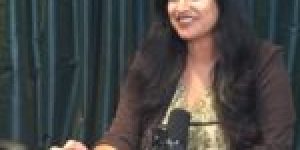
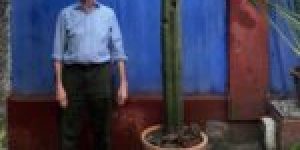
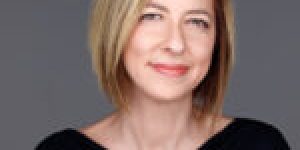
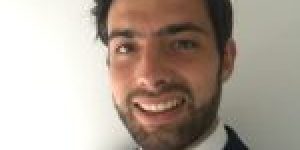
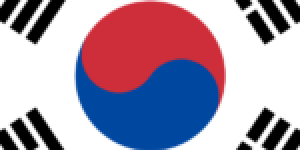

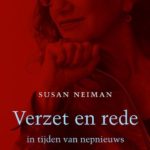
August 3rd, 2013 @ 6:55 pm
See also:
Gerrit Schutte and Harry Wels (Editors) – POEM: The Vrije Universiteit And South Africa, From 1880 To The Present And Towards The Future: Images, Practice And Policies – http://rozenbergquarterly.com/?p=5551
Albert Grundlingh – Some Trends In South African Academic History: Changing Contexts And Challenges – http://rozenbergquarterly.com/?p=5560
Tom Lodge – Political Studies In South Africa. A Personal Perspective. – http://rozenbergquarterly.com/?p=5636
Ena Jansen – A ‘New’ Literature – http://rozenbergquarterly.com/?p=5851
Flip Smit – ‘New’ Scientific Practice In South Africa With Special Reference To Land Reform – http://rozenbergquarterly.com/?p=5872